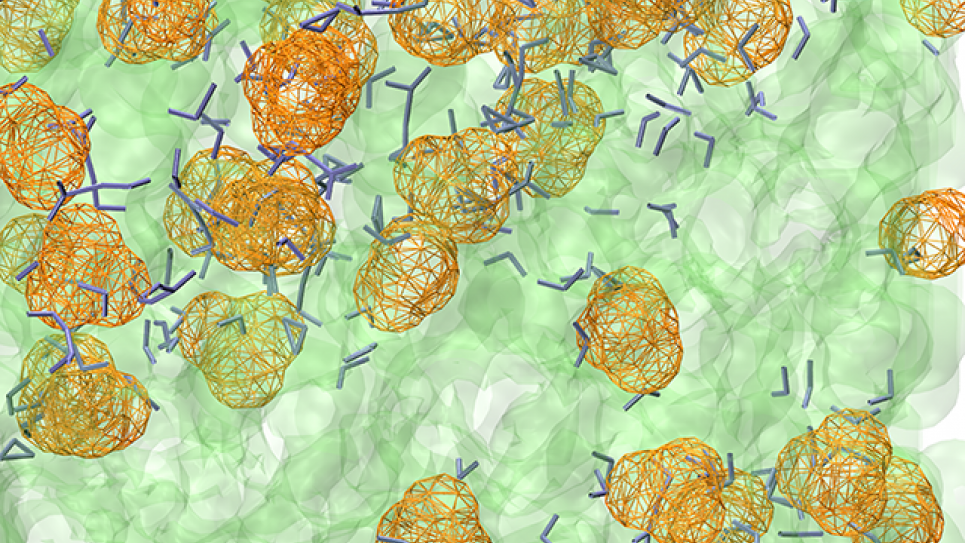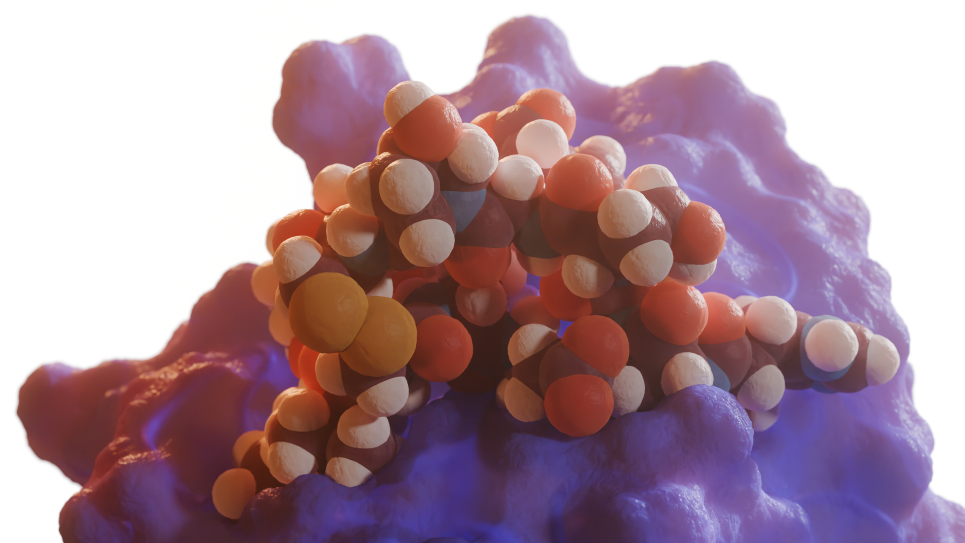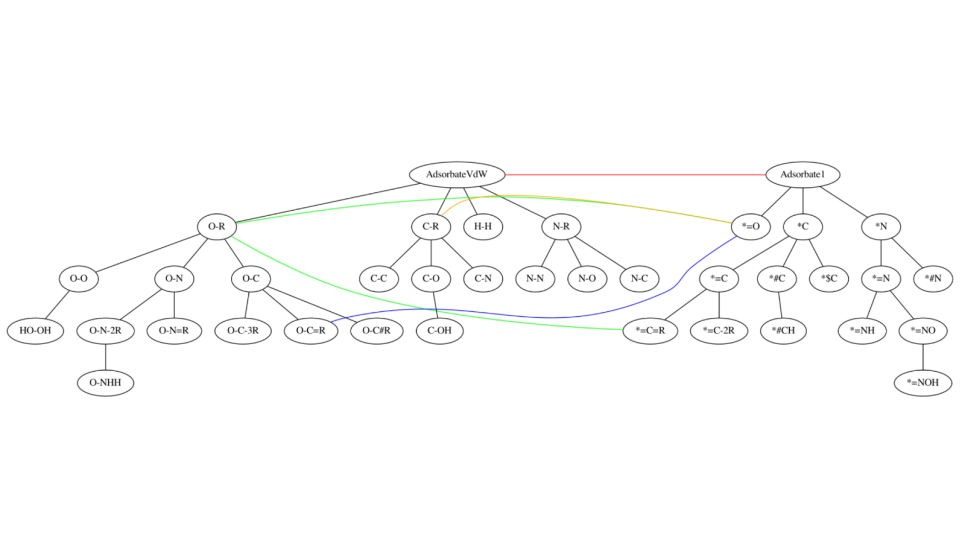
Influence of Morphology on Proton Transport in Proton Exchange Membrane
Powering society with alternative technologies to fossil fuel combustion has been increasingly recognized as a national security priority. Included in alternative technologies are electrochemical energy‐conversion devices, such as fuel cell. The successful development of low‐cost, high‐performance electrochemical devices would have an important impact in the clean energy market. To date, the rate‐limiting step in the optimization and design of new materials for such systems has been the use of intuition based “guess and check” strategies. The efficiency of this strategy can be significantly improved with the incorporation of a detailed fundamental understanding of the associated transport processes based on the results of combining experimental characterization and molecular modeling.
The project utilizes a combination of novel molecular simulation algorithms developed by this team to improve the understanding of fundamental processes that govern charge transport in polymer electrolyte membranes commonly used in fuel cells. The ability to satisfy all criteria for realistic calculations on these important systems will be accomplished by the coupling of accurate reactive dynamics models, a highly efficient simulation software package and parallelization strategies specifically tailored to multistate simulations. The outcome of the project will be a significant step forward on answering fundamental questions regarding proton transport in fuel cell membranes and stimulating the synergy of theoretical and experimental characterizations of these important systems.


